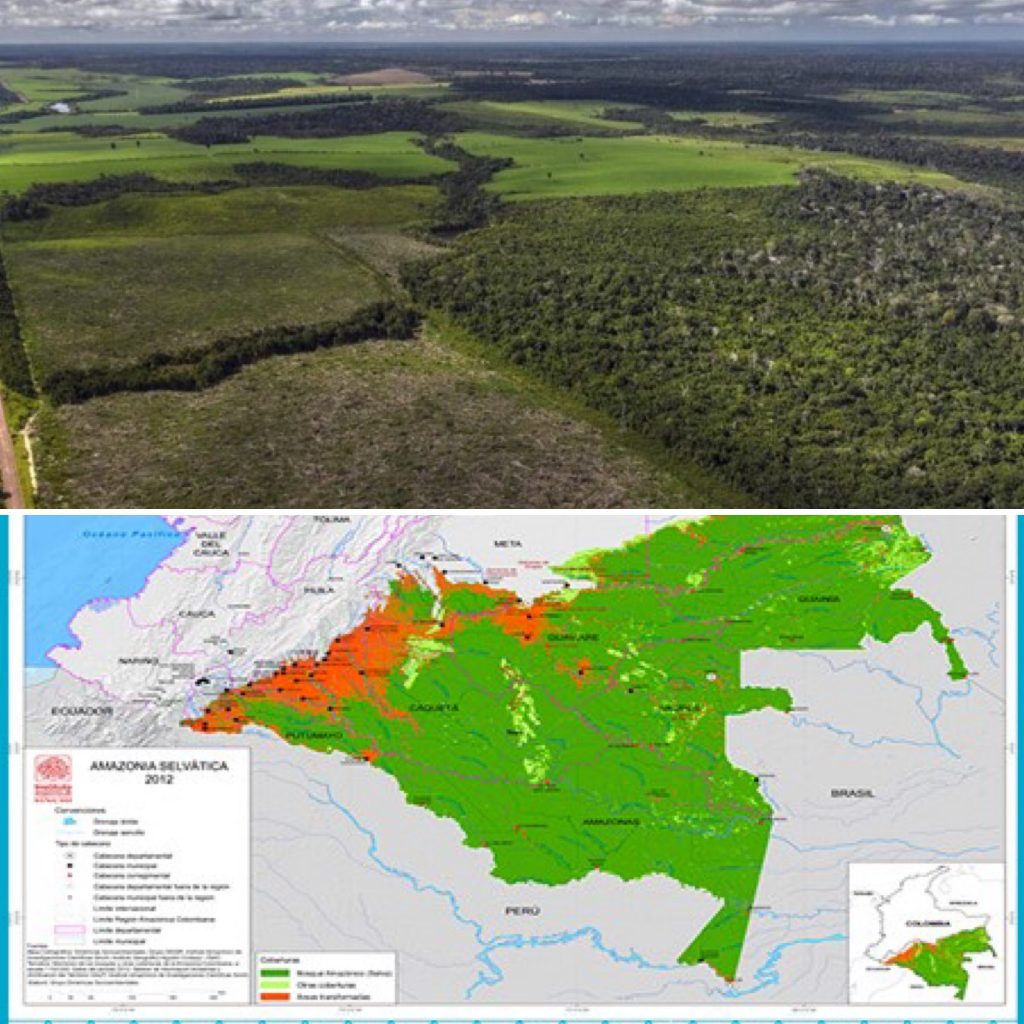Colombia is in the process of the implementation of the Peace Agreement signed in 2016. Lack of governmental presence, unsustainable land use patterns, and land grabbing have caused a 40% increase in deforestation. This project brings together a multidisciplinary team of research experts led by Heriot Watt University and the Amazonian Scientific Research Institute – SINCHI in Colombia.
The project team has used big data analysis together with economic techniques to merge existing environmental, socioeconomic, and agroforestry monitoring datasets from SINCHI into a new and integrated dataset facilitating policy evaluation of the land use alternatives.

Several conservation mechanisms had previously been developed, including agroforestry agreements with local farmers. The data analysis techniques allowed an effective evaluation to be made of the impact of these tools. The research has had an initial level of impact strengthening SINCHI capacity for data collection and information inputs, organisation, and management. The new model, once fully developed, established, and validated, holds the key to replacing current land use with sustainable and economically viable development. Co-designed in collaboration with farmers, it has the potential to reduce deforestation from farm to landscape level.
Networking activities were key for the development of the project, including academic exchange visits to SINCHI in Colombia to deliver a two-day capacity building workshop on data management, treatment effects, production functions and environment valuation. Staff from SINCHI visited HWU for capacity building and training internship.
Future plans of the Project Team are ‘to extend the work to a formal economic model of land use, which includes the study of the determinants of different types of land uses in the Amazonian region and the direct and indirect effects of it on the sustainable development of the region’.
The research has improved the monitoring and planning in SINCHI and also had a significant political impact contributing to the fulfillment of one of the main points of the Peace Agreement.
Marco Ehrlich, Deputy Director for Science and Technology, SINCHI said:
‘It was a great honour for SINCHI to partner with HWU in this project. It represented for the Institute a significant contribution in our efforts to protect and sustainably use this globally important biome for the inhabitant’s benefit and the planet in general. This project was a unique opportunity to share research efforts and collaborate with a top academic institution from the UK and generate innovative solutions and creative models capable of addressing the many problems and challenges confronting the largest and most biodiverse forest on Earth’
Mr Mustapha Mohammed Wasseja, PhD/RA
This project was funded by the Global Challenges Research Fund (GCRF) via the Scottish Funding Council (SFC).
